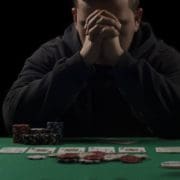Why is hoarding therapy so important?
In the tranquil precincts of Byron Shire, where the community thrives on wellness and harmony with nature, issues like hoarding can seem incongruous with the serene lifestyle. Yet, hoarding is a complex and misunderstood condition that affects many, with implications that stretch beyond cluttered spaces. Anne Evans Counselling recognises the profound impact hoarding has on individuals and their loved ones, and highlights the indispensable role of hoarding therapy in fostering recovery and wellbeing.
Understanding Hoarding
Hoarding disorder is characterised by the persistent difficulty discarding or parting with possessions, regardless of their actual value. This behaviour can create living conditions that are cramped, hazardous, and distressing for both the person hoarding and their family. More than just a proclivity for collecting, hoarding is often rooted in deep-seated emotional issues and can be associated with other mental health disorders.
The Importance of Hoarding Therapy
Anne Evans Counselling underscores the importance of hoarding therapy for several key reasons:
Addressing Underlying Emotional Issues
Hoarding is rarely about the objects themselves but about the emotional significance attached to them. Therapy provides a safe space to explore the underlying issues, which may include trauma, loss, depression, or anxiety. By uncovering and addressing these emotional drivers, therapy can help individuals understand and eventually manage their compulsion to hoard.
Preventing Serious Health and Safety Risks
The clutter resulting from hoarding can pose serious health and safety risks. Fire hazards, tripping dangers, and unsanitary conditions can all stem from a hoarding situation. Hoarding therapy aims to mitigate these risks by helping individuals clear their spaces and develop healthier coping mechanisms.
Rebuilding Relationships
Hoarding can strain relationships with family and friends, leading to isolation and loneliness. Therapy provides strategies for rebuilding trust and communication with loved ones, facilitating healing not only for the individual but also for their social connections.
Enhancing Quality of Life
Through therapeutic intervention, individuals learn to let go of possessions that are crowding their living spaces and minds. The reclaiming of physical space often parallels an emotional release, leading to improved functionality and a better quality of life.
Tailoring Strategies for Lasting Change
Hoarding therapy isn’t one-size-fits-all. Anne Evans Counselling appreciates the need for a tailored approach that considers the individual’s personal history, the severity of the hoarding, and their readiness for change. Customised strategies ensure that therapy is respectful, effective, and enduring.
Offering Support and Accountability
The journey to overcoming hoarding is challenging and can be fraught with setbacks. A therapist serves as a support system, offering encouragement and holding the individual accountable, which is crucial in maintaining progress.
Fostering Independence and Self-Esteem
Therapy helps individuals develop decision-making and organisational skills, fostering a sense of independence. This empowerment can significantly boost self-esteem and the belief in one’s ability to overcome challenges.
Integrating Aftercare and Maintenance
Hoarding therapy includes planning for the future to prevent relapse. Aftercare is a critical component, where therapists help individuals develop routines and strategies to maintain their progress, ensuring long-term success.
Hoarding Therapy at Anne Evans Counselling in Byron Shire
At Anne Evans Counselling, hoarding therapy is approached with compassion, understanding, and a non-judgmental stance. Nestled within the healing environment of Byron Shire, therapy sessions are designed to promote introspection and growth, supporting individuals as they navigate the complexities of hoarding disorder.
Clients are guided through a process of decluttering that is both physical and emotional. The therapy combines practical assistance with psychological support, equipping individuals with tools to transform their homes and lives.
Embracing Change with Compassion
Hoarding therapy, as practised by Anne Evans Counselling, acknowledges the deep-rooted nature of hoarding and its wide-ranging impacts. By embracing the process with empathy and expertise, individuals affected by hoarding in Byron Shire can embark on a transformative journey towards recovery. This therapeutic intervention is not just about clearing space; it’s about reclaiming life, fostering wellbeing, and nurturing a harmonious existence that resonates with the spirit of the community.









